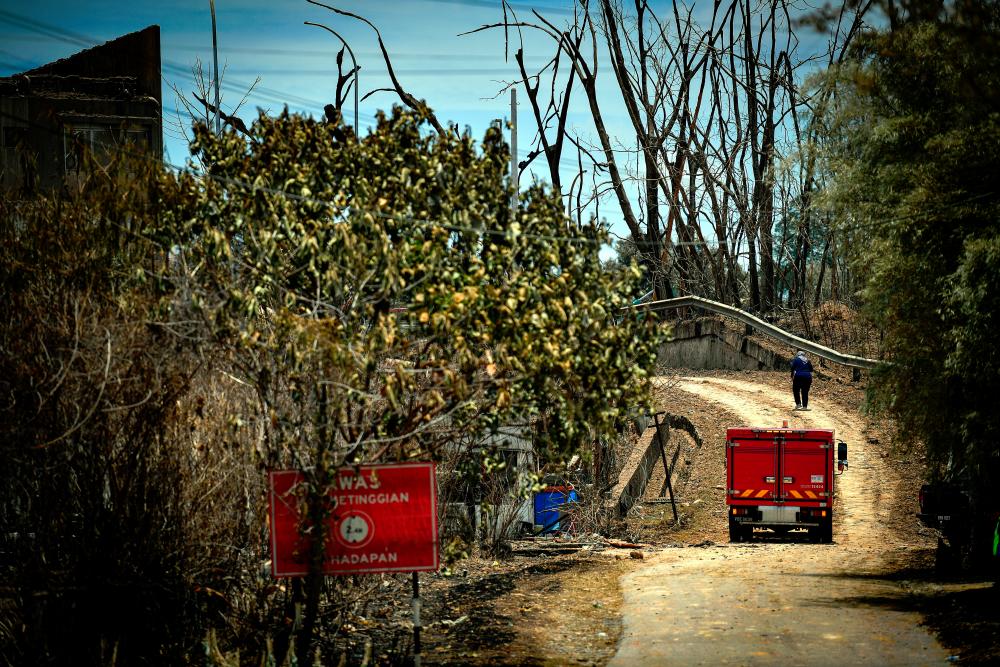KUALA LUMPUR: The Petronas gas pipeline blaze in Putra Heights, Subang Jaya, yesterday, has raised concerns among environmental groups, who argue that it underscores the growing risks associated with Malaysia’s increasing reliance on fossil gas as a major energy source.
According to a joint statement issued by RimbaWatch and Greenpeace Malaysia, a coalition of 21 non-governmental organisations (NGOs), such incidents not only highlight concerns about air quality, but also pose a direct threat to energy security, making it crucial to determine the exact causes, and ensure transparency by informing the public.
“If gas continues to be the primary energy source, with expansion requiring new pipelines or increased use of existing ones, transparency in monitoring, maintenance, and management must be prioritised and made publicly accessible.
The coalition also argued that a safer and more sustainable alternative is to prioritise energy efficiency and renewable energies, such as solar, as primary resources for a just energy transition.
“Unlike gas, these solutions must minimise environmental and security risks, while ensuring long-term energy stability - provided they are supported by the right infrastructure,” the coalition said.
The NGOs also voiced concerns over Malaysia’s environmental regulations and policies, highlighting that the country’s Ambient Air Quality Standards fall below the World Health Organisation’s recommended guidelines for key pollutants.
“While the Environmental Quality Act 1974 mandates facility operators to conduct additional monitoring following hazardous emissions, it does not require them to publicly disclose the findings.
“Similarly, we were unable to find any health, safety, or disaster risk management policies from Petronas Gas Berhad outlining their standard operating procedures, including whether such information would be publicly disclosed. Notably, during past incidents involving the Sabah-Sarawak Gas Pipeline, this information was also not made available to the public,” it said.
Citing Principle 10 of the Rio Declaration on Environment and Development - which mandates that information on hazardous materials and activities must be accessible to all citizens - the NGOs urged the government and Petronas to conduct a full and transparent investigation into the incident.
While they applauded the swift action by the authorities in managing the incident, the NGOs also voiced their concern over the potential health impacts from harmful chemicals and air pollutants dispersed by the incident, due to significant atmospheric methane emissions.
The NGOs also urged for a genuine Just Energy Transition (JET), advocating a shift away from fossil fuels toward safer and cleaner alternatives, such as energy efficiency and renewable energy.
“Fossil gas pipeline leaks can have both immediate and long-term health effects. For instance, Methane, the primary component of fossil gas, can deplete oxygen levels in the environment, leading to health issues such as slurred speech, vision and memory impairment, nausea, vomiting, and headaches,” the coalition said.









